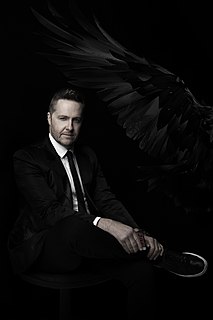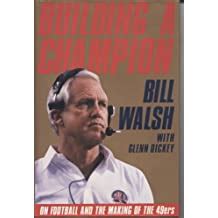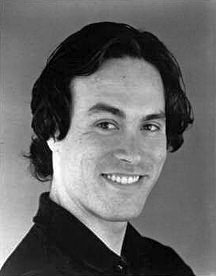A Quote by Susan Sullivan
To work on great material, what you really end up working on is yourself, your own humanity.
Related Quotes
I had to leave some traces. In the beginning, I would give complete instructions to the photographer. In the '70s, people would come to photograph your work and you would just end up with this crazy material that had nothing to do with your work; maybe I'd pick up two or three photographs that were the closest to the idea. This is why when you look at the '70s, you see much less documentation and really bad material. The material will become misleading to what the piece was.
I do have a sense of fear every day going to work, but I think it's something that I like. I mean I do like the feeling of waking up on my own, having this moment of like: "Oh, f**k, I hope I can do this today!" Because it makes you realise that you're working with material or you're working with a director or you're working with a cast and they're keeping you on your toes.
The story, I like to say and remember, is always smarter than you—there will be patterns of theme, image, and idea that are much savvier and more complex than what you could come up with on your own. Find them with your marking pens as they emerge in your drafts. Become a student of your work in progress. Look for what your material is telling you about your material. Every aspect of a story has its own story.
The most dangerous thing you can do is to take any one impulse of your own nature and set it up as the thing you ought to follow at all costs. There is not one of them which will not make us into devils if we set it up as an absolute guide. You might think love of humanity in general was safe, but it is not. If you leave out justice you will find yourself breaking agreements and faking evidence in trials "for the sake of humanity", and become in the end a cruel and treacherous man.
When you're watching yourself work, you're not really an audience member for yourself. Even being confronted by your own image can be jarring sometimes. The experience of making a movie or a television show is this really full one, and sometimes you see it and even if it's a great piece of work, it's not the experience - i t's almost sad because it reminds you of something that isn't anymore.
Humanity needs practical men, who get the most out of their work, and, without forgetting the general good, safeguard their own interests. But humanity also needs dreamers, for whom the disinterested development of an enterprise is so captivating that it becomes impossible for them to devote their care to their own material profit.
You do run and scream and cry and work yourself up into hysterics, and then you get back to the hotel at the end of the day, and you feel really off and really strange. And that's because rationally, even though you know everything is OK, you have put yourself through this traumatizing experience, and your body is still going.
There is another side [to ego] that can wreck a team or an organization. That is being distracted by your own importance. It can come from your insecurity in working with others. It can be the need to draw attention to yourself in the public arena. It can be a feeling that others are a threat to your own territory. These are all negative manifestations of ego, and if you are not alert to them, you get diverted and your work becomes diffused. Ego in these cases makes people insensitive to how they work with others and it ends up interfering with the real goal of any group efforts.
When you work for others, you are at their mercy. They own your work; they own you. Your creative spirit is squashed. What keeps you in such positions is a fear of having to sink or swim on your own. Instead you should have a greater fear of what will happen to you if you remain dependent on others for power. Your goal in every maneuver in life must be ownership, working the corner for yourself. When it is yours, it is yours to lose - you are more motivated, more creative, more alive. The ultimate power in life is to be completely self-reliant, completely yourself.
All I can tell you is that you cannot make choices in your own career, either career choices or choices when you're actually working as an actor, based on trying to downplay or live up to a comparison with somebody else. You just can't do that. You have to do your own work based on your own gut, your own instincts, and your own life.
Us on hard drugs? That would be horrible. We'd probably end up sounding like Bryan Adams.My girlfriend has this quote in her sketchbook: Remain orderly in your life so you can be free and chaotic in your work. I think basically you lose it when you destroy your brain or destroy yourself emotionally or burn yourself up.




































